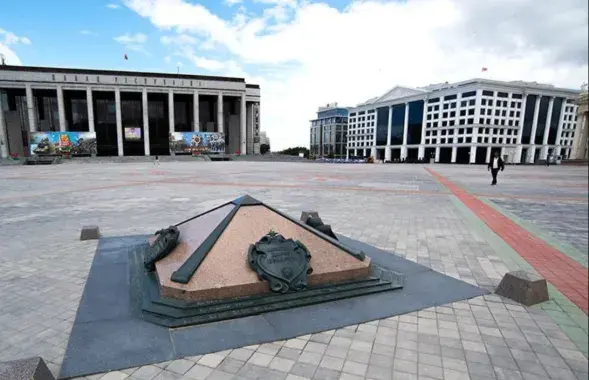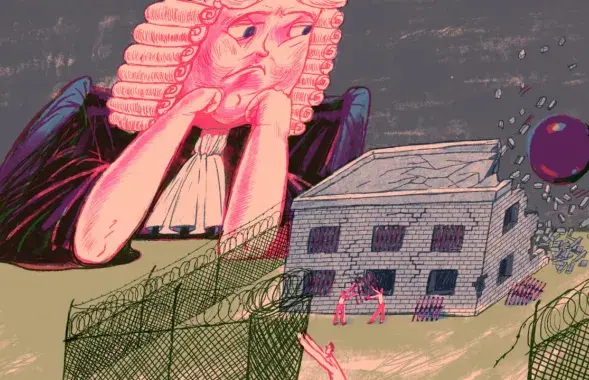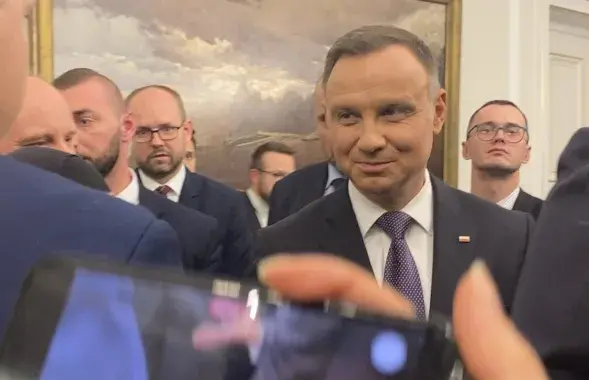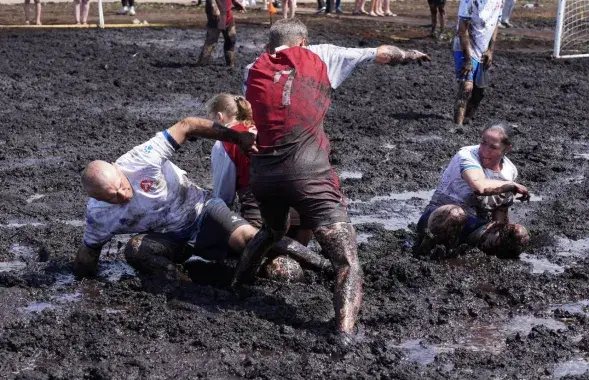The day Belarus lost its language, white-red-white flag and Pahonia coat of arms
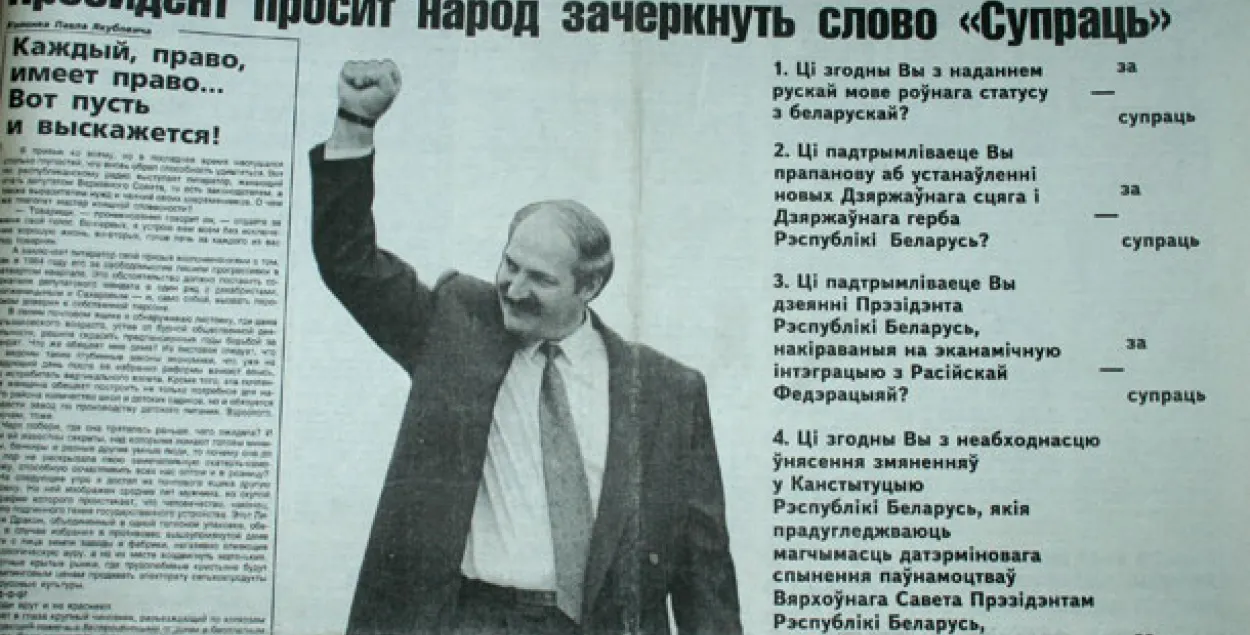
On May 14, 1995 Belarus lost its Pahonia coat of arms, white-red-white flag and the Belarusian language as the single state tongue. Eurorado has put together a brief reminder of what happened during the 1995 referendum in Belarus.
Who proposed the referendum?
The referendum was put forward by Aliaksandr Lukashenka personally who had been in the office of the president for less than a year. Back then, it was common for the opposition to gather tens of thousands people for street protests, while the police would be naturally fearful of demonstrators.
In February 1995, Lukashenka announced his plans to hold a referendum. On April 11, the majority of members of the parliament (Supreme Council) voted in favor and set the date for May 14 but turned down the three out of four questions proposed for the referendum. Lukashenka said he would take up the full responsibility for the referendum and threatened to suspend the parliament if the Supreme Council did not change its mind. As a sign of protest, deputies from the Belarusian Popular Front faction in the parliament led by Zyanon Paznyak and Social Democratic Party led by Aleh Trusau started a hunger strike in the Oval Hall of the parliament building and remained there for the night of April 12. At night, riot police soldiers and president's security service officers entered the Oval Hall and forcibly pushed the protesting deputies out on the grounds that a bomb alert had been received. Investigators later confirmed the bomb scare was reported indeed but failed to identify who alerted the law-enforcement. In the morning, the deputies complained their eviction was accompanied with beatings. Investigators indeed confirmed injuries on their bodies.

What were the questions proposed?
There were four questions.
- On giving the Russian language the status of a state language.
- On changing the state symbols.
- On supporting the president's actions aimed to strengthening integration with Russia.
- On the need to introduce amendments into the Constitution, envisaging the dissolution of the Supreme Council by the president in cases of systematic or gross violation of the Constitution.
The vote on the fourth question was recommendatory, i.e. not binding for the authorities.
How did people vote?
The greatest support Lukashenka received was on giving the Russian language the status of a state language and on integration with Russia. 83.3% of those participating in the referendum voted in favor of the each of those two questions.
77.7% supported Lukashenka on giving him powers to dissolve the parliament. 75.1% of Belarusians agreed to change the state symbols. What would be the results of the vote today?
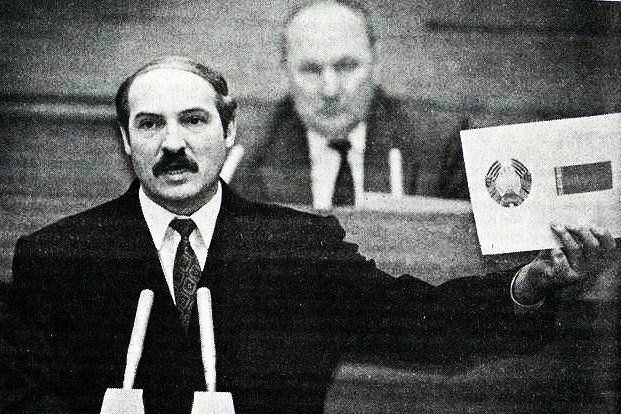
Were there violations during the polls?
According to Mikhail Pastukhov who was a Constotutional Court judge in 1995, there are no grounds to treat the referendum as invalid. Pastukhov reckons there were no serious violations in the course of the vote.
On the other hand, questions remain as to the legitimacy of the referendum per se. The former member of the Supreme Council Siarhei Navumchyk repeatedly said about numerous violations during the polls. He stressed that Belarusian laws did not allow proposing the questions related to national and historical identity for a referendum. Moreover, various violations were spotted at all the polling stations where observers from the Belarusian Popular Front were present. The results of the referendum were not approved by the 12th Supreme Council and eventually passed only by the next parliament. One of the reasons one can claim that the results of the 1995 referendum should not be regarded as legitimate is the Constitution cannot be amended earlier than six months before the parliamentary election.
Russia's reaction
It was quite predictable. The statement of the Russian parliament, the Duma, said "it heard the results of the May 14, 1995 referendum with enthusiasm as the polls confirmed irreversible aspiration of the Belarusian people to unite with Russia... The expressed position of the Belarusian people on the questions of relations with Russia, on the status of the Russian language and on the state symbols was convincing proof to deep understanding of the fundamental interests of our two fraternal peoples."
What happened to the coat of arms and flag on the parliament building?
The Pahonia was quickly removed from the building in Independence Square by a crane. It laid on the ground for several years in the backyard of the House of the Parliament. It remains unknown what happened to it later. The white-red-white flag was removed from the roof of the government building on May 16 by the former deputy head of agricultural department at the Mahilou Branch of the Communist Party of Belarus and the head of Property Management Directorate of the President of Belarus Ivan Tsitsiankou. He personally torn the flag into pieces for souvenirs and left his signature on them.
Can the results of the 1995 referendum be invalidated?
Yes. According to the former Constitutional Court judge Mikhail Pastukhov, "the analysis of the facts shows that the results of the referendum on giving the Russian language the equal status with the Belarusian language are invalid from the legal point of view and should be abolished.
How can the situation be changed and how the results of the illegitimate referendum can be annuled?
“In principle, it is not so difficult. But several conditions are needed, the restoration of the rule of law, statehood and democracy in the Republic of Belarus as the main one. That's when the issue of legitimacy of the May 1995 referendum will inevitably return to the agenda. A new composition of the Constitutional Court, elected democratically, will be able to take a legitimate decision of the issue of the state language," Pastukhov said in one of his interviews. It means that the return of Pahonia and the abolishment of the state language status of the Russian language can be ruled merely by a court ruling.
Did you know?
The newly introduced red-green flag was not hoisted on the building of the Constitutional Court in Karl Marx street for two years till February 4, 1997. The white-red-white flag had been removed for two years as well.

